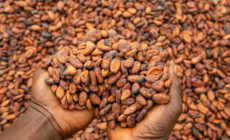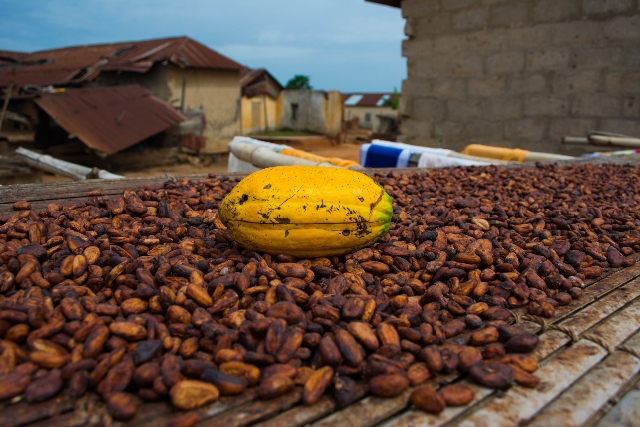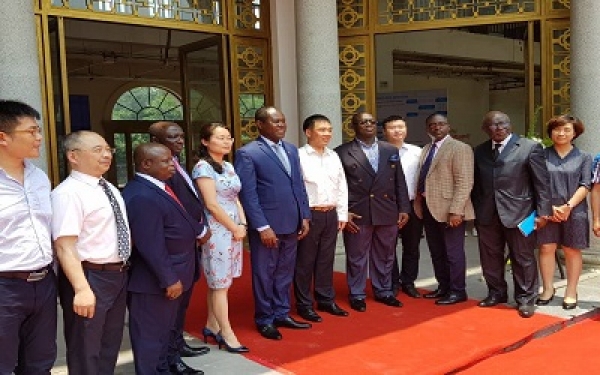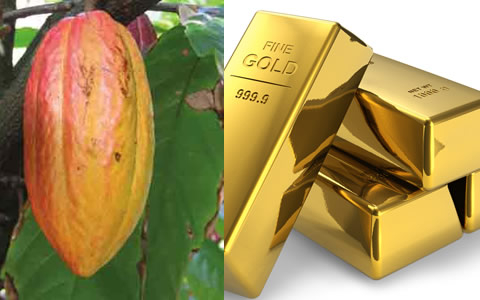Out of the 40%, 17% have been affected by swollen shoot disease while 23% are over 30 years and had become unproductive.
Ghana, the second largest producing country in the world, targets to raise production to 1 million tonnes by 2020, from the current annual output of 800,000 tonnes.
The above challenges coupled with ‘galamsey’ destroying additional cocoa farms and falling prices threaten the one million tonnes target.
Chief Executive of Ghana Cocoa Board (COCOBOD), Joseph Boahen Aidoo, who made the disclosure, said the only solution is to cut down all the trees and replant.
“What it means is that at least 40 percent of Ghana’s cocoa stock is not producing and it’s a challenge we must resolve to sustain production in future,” he said.
To achieve the target, he said COCOBOD was seeking funding from African Development Bank to undertake an extensive rehabilitation of moribund farms, to be complemented by a hand pollination programme to be launched on Thursday in the Ashanti Region.
He stated that the cocoa sector contributes 4.22% of Gross Domestic Products (GDP), 30% of export earnings.
He added that while farmers in other countries make 32 bags from one hectare, some Ghanaian farmers do not even make one bag from a hectare.
No annual bonuses to cocoa farmers this year
Aidoo further disclosed that Ghana might not pay annual bonuses to cocoa farmers this year due to a drop in global prices from $3,000 in June 2016 to about $1,975.
Farmers paid $400 more than world market price
“Considering the current level of (world) prices, we believe we are paying $400 more per tonne to our farmers than the price we sell the cocoa at the world market. It is a tight situation and we may not be able to pay bonuses this year,” he added.
He explained that farmers are being paid more than the world market price because of government maintained the producer price paid to farmers despite the price fall.
The COCOBOD Chief Executive defended the government’s decision to subsidise fertiliser for farmers, saying that the free fertiliser is fueling smuggling to neighbouring countries.
Cocoa: 40% of trees to be cut
- Posted on
- Comment
 – No annual bonuses for farmers this year
– No annual bonuses for farmers this year
GHANA’S desire of increasing cocoa production has suffered a major setback as it has been revealed that 40% of all cocoa trees in Ghana are not productive.
By Elvis DARKO, Accra










 (Selorm) |
(Selorm) |  (Nana Kwesi)
(Nana Kwesi)